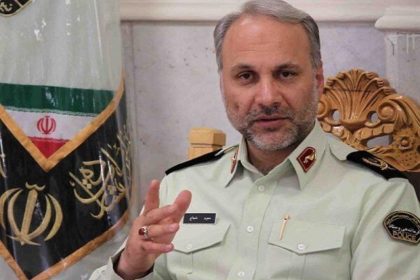RASC News Agency: In a continuation of their systematic purge of former government and security officials, the Taliban have reportedly detained General Mohammad Alam, a retired senior officer from Afghanistan’s former Ministry of Interior, shortly after his return to Kabul from Iran. According to local sources, General Alam originally from Panjshir province, a region historically known for its resistance against Taliban domination was arrested on Monday, June 30,in the Pul-e-Charkhi district, located on the eastern edge of Kabul.
General Alam had served in the counter-narcotics division of the Ministry of Interior during the Republic era and had officially retired four years before the fall of Kabul in August 2021. His final post was the Director of Counter-Narcotics in Panjshir. Sources close to the family confirmed that he had spent the past few years in Iran and had only recently returned to Afghanistan to visit relatives. The Taliban, consistent with their opaque and authoritarian practices, have provided no public explanation for his arrest. There has been no official charge, no court proceeding, and no confirmation of his whereabouts, leaving his family and community in deep anxiety and fear.
Since reclaiming power nearly four years ago, the Taliban have systematically targeted thousands of former security officials, despite issuing public declarations of a so-called “general amnesty.” Human rights organizations, including Amnesty International and the UN Special Rapporteur on Human Rights in Afghanistan, have documented a pattern of enforced disappearances, extrajudicial killings, and arbitrary detentions particularly aimed at officers and civil servants from the former government. General Alam’s arrest is the latest in a long string of politically motivated detentions. According to former colleagues and Panjshir residents, his only “offense” appears to be his prior service in a professional, Republic-aligned security institution and his ethnicity and regional affiliation, which have increasingly made Panjshiris a target for Taliban retribution.
“This is not law enforcement it is political revenge,” said one former officer of the Interior Ministry, now in exile. “The Taliban have turned justice into a weapon of intimidation, selectively punishing anyone who wore a uniform before 2021.” Legal experts and civil society advocates warn that these arrests further expose the Taliban’s utter disregard for due process, legal transparency, or human rights. There is no functioning judicial oversight, and the Taliban’s intelligence apparatus operates unchecked, opaque, and with impunity. Detainees are often denied access to lawyers, family visits, or even confirmation that they are in custody.
“General Alam retired years ago. He had no political affiliation, no involvement in resistance. Yet his detention sends a clear message: no one is safe under Taliban rule not even the retired and apolitical,” said a Kabul-based lawyer, who requested anonymity due to fear of reprisal. Families of detainees, particularly in Kabul, Panjshir, Baghlan, and Takhar, have pleaded with international institutions to intervene and pressure the Taliban to release innocent detainees and halt their campaign of fear.
Despite repeated claims of wanting international recognition, the Taliban continue to act in stark violation of international human rights norms and the UN Charter. Their arrests, beatings, and extrajudicial killings are seen not as isolated incidents, but part of a larger project of consolidating power through coercion, repression, and ethnic targeting. As long as former officials like General Alam are arbitrarily imprisoned and silenced, there can be no pathway to genuine reconciliation or peace in Afghanistan. What prevails instead is a regime obsessed with vengeance, deeply allergic to dissent, and structurally incapable of governing with justice or legitimacy.






